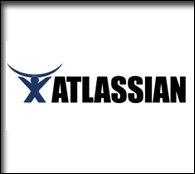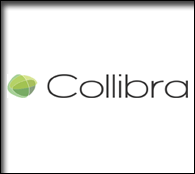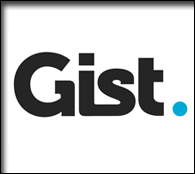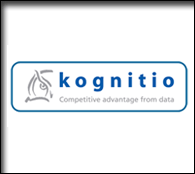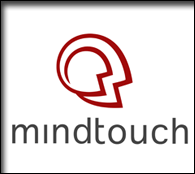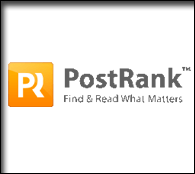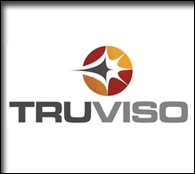Archive for August, 2010
Monkeys and Typewriters and Data (oh my!)
by Eric Norlin on Aug.30, 2010, under Uncategorized
That’s the title of Paul Kedrosky’s keynote (Monkeys and Typewriters and Data — I added the “oh my!”). And it sits at the convergence of some conversation threads I’ve got going today…
I asked Paul to shoot me a paragraph about his keynote at Defrag. He sent over this:
===
Monkeys and Typewriters and Data
We have instrumented the planet. From webcams, to sensors, to servers, to satellites, we collect more data, on more things — at more times and in more places — than ever before. From Chinese electrical consumption, to Lake Havasu water levels, to Amazon web traffic, to iPhone backorder times, we have it all.
But given enough data, there will always, even if by chance, seem to be something wrong, something right, and something doing nothing at all. How do we tell the difference? Let’s talk about how we keep all these monkeys and typewriters with data from screwing up the world.
===
As I was receiving that, I was on the phone with Esteban Kolsky. We were talking about how data has become commoditized, and in some ways - useless. Every piece of technology generates more data at a greater volume and velocity - and our ability to process and analyze that data is reaching dizzying speeds. In essence, if I can gather the data to argue the sky is green (to 99% certainty), and you can simultaneously gather the data to argue the sky is blue (to 99% certainty) — then what GOOD is the data?
More pointedly, how do we (and business) know what “objective” measures must be in place to help us determine what we consider valid insight, and what we consider just “analytics” (ie, data that can be massaged to say anything). It’s actually a *philosophical* discussion at some level.
Is it possible that we need to make our organizations *dumber*? Is it possible that when infinite amounts of data can be crunched by ever increasing numbers of people, we’re actually entering a *dangerous* place? What if “transparency” has nothing to do with “intelligence” - and too much “intelligence” (analytics, not insight) is a bad thing? And who the hell gets to make these judgements anyway?
Defrag: working hard to make your head spin.
Come drown in data with us, while we design what life-rafts should look like. Join us.
The Sponge Bob Economy
by Eric Norlin on Aug.30, 2010, under Uncategorized
If you’ve been reading along with the defrag blog for any period of time, you’ve probably figured out that I like to have a macro-economic view inform how I approach things. For over a year now, I’ve been pounding on the theme of a “productivity boom” as an economic meta-theme — one that was driven by the databases/spreadsheets of the 80’s, email/e-commerce/productivity apps in the 90’s, and SaaS/productivity apps/shift to the cloud in the 00/10’s.
If we look at the current economic situation (from my admittedly, U.S.-centric viewpoint), we find ourselves in a world where a massive amount of liquidity has been pumped into the system (via the actions of the Fed and other central banks). Companies (technology and otherwise) are now sitting on a massive amount of cash in the face of fears around economic recovery, and as I’ve pontificated over the past few weeks, we’re going to see a huge M&A surge heading into year’s end (before cap gains taxes increase substantially around these transactions). Just this morning, we see over 2 billion in M&A transactions (Intel and 3M).
One of the great debates raging in macro-circles is around deflationary vs. inflationary cycles. And so, I read with great interest this blog that Phil shot my way over the weekend. In “The Techn-Sponge” the blogger (I can’t seem to find this guy/gal’s name) asserts that the technology sector (via Moore’s law) is having two effects:
1) as 1.5% of the world’s GDP, the tech sector’s march via Moore’s law (where the price for similar functionality gets halved every 18 months) is soaking up all of the excess liquidity that has been pumped into the system
2) the second order derivative of that is an increase in the rate of productivity gains (via - the tech sector)
In plain speak: all of the money and low interest rates that SHOULD have kick-started the economy and effectively brought real inflation back is being “sucked up” because of the very nature of the tech sector itself (a sector which plans for and KNOWS that falling prices — ie, deflation — is the order of the day).
The blogger goes on to assert: “We have never had a significant technology sector while also facing the fears (warranted or otherwise) of high inflation.”
His (or her?) final assertion is that the only way from dropping into dangerous deflationary territory is to start up the printing press again and keeping injecting trillions into the economy until we see inflation.
Now, I’m not sure about his conclusion (which is to say that I’m willing to question the magnitude of the effects that he asserts), but I’m fascinated by the idea that something structural changed with the rise of the tech sector - and that structural change is directly related to the productivity boom. To be fair, TONS of people (from Mary Meeker to Thomas Friedman) have theorized about structural economic changes (related to worldwide tech growth) - that is certainly nothing new. What I like here is the direct tie to tech being a deflationary force that has set up its own positive feedback loop.
So, if this guy is even half right, what does this all mean? A few guesses:
1. Unemployment in double digits is just a symptom of this deflationary environment we live in (the “new normal” - ugh).
2. Our beloved tech sector (and all of its SaaS-y, e.20, cloudy goodness) is soaking up all of the liquidity that would normally lead to inflation (and lower unemployment). And the continuing productivity gains that we’re all making our living selling will just make sure that it stays that way.
3. Tech product cycles can only get faster (in a deflationary environment the only way for tech companies to maintain price points is to release new products at a faster and faster rate).
4. “Collaboration” (ie, e.20, social software) will hit a cycle where we see some sort of productivity jump (a leap) that coincides with mainstream adoption.
5. The deflationary force that is the baby boomers layers on top of all of this and makes it more than likely that the debt-to-GDP worriers (John Mauldin) are right — we don’t see another secular bull market until 2017-2020.
Bottom-line: in some strange way, we (the tech sector) are the architects and perpetuators of this low growth, no inflation, rising productivity era we find ourselves in.
Which I suppose is better than the alternative. Maybe I’ll just start referring to this as the Sponge Bob economy (hat tip: “the techno-sponge”).
By the way, wanna chat more about deflation, collaboration, markets, innovation cycles, baby boomers and other goodness — join us at Defrag — the super early bird rate expires this Friday.
The Worm
by Eric Norlin on Aug.25, 2010, under Uncategorized
Suddenly, I woke up and it was August 25th - which means that the “super early bird” rate of $995 for Defrag expires next Friday (Sept. 3rd). Funny story: when we were setting up this rate in eventbrite, Kim turns to me and says, “it’s not just early bird, what should we call it?” I immediately suggested “the worm” (as in, “the early bird gets the…”). Kim vetoed that idea (ie, she was logged into eventbrite) and called it “Super Early Bird” — but to me it will always be known as “The Worm.” ![]()
I’ve barely got an outline of an agenda up, but you can at least know this: the keynoters include Esther Dyson, Michael Wesch (digital anthropologist, KSU), Paul Kedrosky (on data, markets and highway debris), Jeff Jonas (chief scientist, IBM on “organizations are getting dumber and it’s IT’s fault”), JP Rangaswami (”information as seen through the eyes of a foodie”), David Weinberger (of Cluetrain fame), Alex Wright (author of Glut; on “oral culture in social networks”), Stowe Boyd (on Community), Vivek Wadhwa (on Innovation), and topics that span analytics, semantic data, collaboration, social CRM, feedback and product management, and APIs. Plus, I’m most likely adding two awesome keynote speakers this week.
In short, missing out on this is just gonna be silly, as I don’t think you’ll find a more influential collection of tech minds this fall.
The price is right right here, and it only goes higher — so use the code “eb1″ and take an additional 10% off of The Worm. ![]()
Update: Vinnie Mirchandani, author of The New Polymath, has signed on for keynoting Defrag. Vinnie will be addressing analytics and data visualization in a polymath world.
All About Entrepreneurism
by Eric Norlin on Aug.23, 2010, under Uncategorized
Brad’s got a post up about entrepreneurial density in Boulder, and I’m back from a little morning exercise, having spent the time thinking about (oddly enough) entrepreneurism.
As I’ve said before, I’m a startup guy. I have two business mantras that I live by: 1) always be starting; and 2) always be closing. I take those to mean that you can never reach a place where you’re just “turning the crank” on an existing product/solution because just doing that is actually losing ground, and whatever the case, you’d better be thinking revenue 25/366.
Defrag, I think, reflects the strong entrepreneurial bias that we (Brad, Phil, Me, and Kim) bring to the table. Even our “big sponsors” are actually small entrepreneurial groups inside of the big Co’s — folks that are, by and large, all about disruption. Beyond the big guys, Defrag is built with the help of startups in varying stages.
But it goes deeper than sponsors. Our agenda has such a strong subtext of entrepreneurial spirit that almost every topic or talk screams “I’ve got this brand new thing that’s gonna change the world.”
Further, we’re going to be offering 15 “entrepreneurial scholarships” to Defrag this year: full conference passes for 15 entrepreneurs. Details to follow, but I suspect the requirements will be something along the lines of “pre-Series A” and blah blah blah. ![]()
Bottom-line: the topic at defrag is the tools and technologies that can be used to deal with the data deluge, but the context and subtext for defrag is entrepreneurism. If you’re not an entrepreneur inside of your company (big or small), I really don’t know why you’d come to Defrag. If you are an entrepreneur inside of your company (big or small), you’ll find yourself right at home and learning/interacting a TON. Join us.
A Special Offer
by Eric Norlin on Aug.17, 2010, under Uncategorized
For reasons completely unbeknownst to me, last night while I was catching up on Mad Men, I had this inspiration — so I’m putting this out there (I haven’t yet decided if I’m stupid for doing this).
Prior to running conferences, I ran marketing for a startup (Ping Identity). Ping was very successful while I was there (and is, in fact, still very very successful; disclosure: I still own shares), and I’d like to think I had something to do with that. But that “something” wasn’t because I was inherently good at marketing (the process of marketing). It’s because I had really really good teachers.
My teachers included Chris Locke and Doc Searls (co-authors of The Cluetrain Manifesto), Steve Larsen (who’s done more internet marketing for more big name tech companies than you’ll ever remember), and industry veterans who ran marketing for Rational Software, RSA Security, and Macromedia — not to mention all of the people in my network that I learned from along the way.
I learned a lot from those teachers. And I like passing it on. So that’s what I’m gonna do.
Here’s the special offer: Somewhere out there is a startup that’s landed their seed round, or is on the verge of Series A, or a product launch, or something. They’ve done the market testing, built the product, done some fundraising, landed some customers — the early stuff. What they haven’t done is bring consistency and organization to their marketing. They need a messaging platform. They need to understand how that messaging platform translates into campaigns, leads, qualified leads, sales process, and predictable revenue funnels.
That’s not a small thing. It’s actually a really daunting thing. Especially if you’re one of the founders or early employees and you’re suddenly facing a board that’s wondering how you’re gonna pull this one off.
So, the offer is this: Become a Silver Sponsor for Defrag and you’ll get me for free.
Here’s what I mean: Sign up as a silver sponsor for Defrag, and between now and November 17th - we’ll work together on your messaging platform, on marketing campaigns/plans for 2011, and on how to translate all of that into repeatable, consistent revenue. Together we’ll build your messaging, do the copywriting (and I ain’t talking patents), figure out the campaigns (goals, spend, metrics), work the creative, and lay out the plan that gets you to point X on a budget of Y. Basically, you spend 10k to be at Defrag, and I’ll throw in 10k worth of marketing consulting (and we’ll use Defrag as a platform).
Am I gonna do this for more than one startup? Hell no. I don’t have the time or energy.
Do I think this can jumpstart the marketing for your company? Absolutely.
And here’s the ultimate kicker: If you’re not happy with the results of my (free) consulting services, I’ll give you the same level of sponsorship at Defrag 2011 FOR FREE.
Let’s recap:
1. Become a Silver sponsor at Defrag.
2. Get Eric’s marketing services for free from now until Defrag.
3. Jumpstart your startup marketing.
4. If you’re not happy with the result of the plans we put together, get the same level of sponsorship for Defrag 2011 for free.
At which point, you’re wondering: Why is he doing this? He must just suck at marketing. Go ahead - ask around. Call the CEO of Ping Identity (andre) and ask him (ok, he’s gonna kill me for that one).
The reason I’m doing this is simple: I got this weird inspiration to do so last night, and if I’ve learned one thing in my 38 years on this planet it’s this — I don’t fight moments of weird inspiration.
So - who wants it? Ping me enorlin AT mac.com.
(man, it’ll be a real blow to the ego if no one takes this…) ![]()
Update: Mike Maney (@thespin_md on twitter) has offered up some of his personal PR wizardry as part of the deal.
Update 2: Ben Kepes (@benkepes) is throwing his hat in the ring as well - offering up “word smithery” as need be. That means that you sponsor Defrag and get the combined marketing/PR/copywriting services of THREE seasoned startups dudes. There’s only one question left: do you have the guts? ![]()
Update 3: And Krish Subramanian is on board as well. That means you now get me (messaging platforms/campaign planning), Mike Maney (PR), Ben Kepes (copywriting) and Krish Subramanian (User Experience) all in with the silver sponsorship. And don’t forget - if it doesn’t work, I give you another Silver in 2011 for free. #totalsteal
How to Make the Defrag Agenda
by Eric Norlin on Aug.16, 2010, under Uncategorized
It seems like I’ve been getting a TON of PR firms contacting me about getting “their speakers” on the defrag agenda, so I thought it might be useful to put down on virtual paper some guidelines/insight into how you can work your way on to the agenda (in no particular order):
1. Don’t open with “Our CEO normally gets paid to speak, so we’re thinking a keynote would be appropriate.” Yea, no. First off, if your CEO normally gets paid to speak, then I’m sure you’ve got plenty of paid requests lying around — why don’t you go pursue those. Secondly, really? THAT is how you’re gonna open your pitch? wow.
2. Don’t push for a keynote - period. Look - the keynoters are a big deal. A big deal. Like a “make or break the show” kind of big deal. And yes, I’m sure you’re a big deal too -but know this: I spend MONTHS finding the right keynoters, and they’re always a mix of authoritative voice, uniqueness, topical relevance and just plain striking my fancy at the moment. Do some of our past breakout speakers receive keynote slots? Yes, they do. I just informed Maggie Fox (of Social Media Group) yesterday that I had slotted her in a keynote talk. Prior to that, she hadn’t asked, and had no idea. I did it because I saw her talk at last year’s Defrag, and I like the way her brain works (plus I now know she’s good on stage). So, if you want a keynote - start with a breakout.
3. Don’t dictate to me how much time you’ll need on stage. Here’s the thing: even the BEST public speakers rarely need as much time as they think — and I’m talking the pro’s that do nothing but speak (and get paid for it). Most people can say what they need to say in 20 minutes (rarely, 30). A lot of speakers give BETTER talks when they’re “rushed” into squeezing their talk into 10 minutes.
4. Do engage me personally. I’m enorlin AT mac.com. Don’t worry about CFPs, or submission deadlines, or any of that crap. Just email me. Write an interesting blog post about a topic you’re working on. Do something engaging. Start a conversation. 99% of the Defrag talks get formed in *conversation* not in solitude. So, let’s chat.
5. Do address one specific topic. If your talk is “how to succeed with social media on zero budget” you can forget speaking. If your talk is “what you can learn from the behavior of bird flocks” - you’re probably in. Pick one topic. Address it succinctly.
6. Don’t fall into the case study trap. There are plenty of conferences looking for case studies. That’s not Defrag. I’m looking for analogies, wild theories, off-the-wall statistically backed up realities, talks that integrate facts from other disciplines. Tell me how the Incredible Hulk taught you the essentials of API pricing, or why fly fishing on the Madison river is the perfect analogue for analytics, not “the four steps to on-boarding a white label social networking platform.”
7. Do use humor, personality, and integrity as your tools. Did you give a killer talk at an O’Reilly show? Send me the video. Make some joke about how you know you’ll have to step it up to make it into Defrag (see - a JOKE), and let it fly. Really, be human.
8. Get to know me. For better or worse, Defrag is run by me (Eric) and my wife (Kim) — not a team of salaried professionals. That means that A) I don’t get paid unless Defrag succeeds and B) whatever the hell I say goes. So, get to know me. Follow me on Twitter, read the blog, etc. And then use that to your advantage — example: If you submit a talk entitled, “Holy Diver: Why Ronnie James Dio Rocks Harder than Anyone Ever” — you might just make it on stage (I have an 80s metal fetish — something you’d know if you knew me.) ![]()
[sidenote: when I say "what I say goes" - I don't mean that as "it's my world and you're living in it." Quite the contrary. Defrag's my baby - and my ONLY goal is to have attendees coming out saying, "that was the best conference ever." Anything short of that sends me back to do it again. You'll notice we're on year four. Bottom-line: the agenda is a collaborative effort that emerges from endless conversations, and it's aimed at pleasing. The responsibility for that falls (ultimately) to one person - me.]
9. If you don’t get on stage, don’t give up. Come to Defrag anyway. Get to be part of the community. Your chances will increase exponentially if you do. I can tell you that as a conference organizer there’s nothing more off-putting than someone who tells me how important Defrag is to their world, and then doesn’t come if they’re not on-stage. I actually had someone tell me that Defrag isn’t worth their time if they’re not presenting. See, that’s funny - cuz you just became not worth Defrag’s time.
10. Make the last minute pitch. Rule #1 of conference organizing: speakers will suddenly develop an emergency that prevents them from speaking and let you know about 7 days before hand. At which point, I’m looking for cool talks. Be in touch late and often.
Lastly, remember - I’m just a human dude. I make stupid mistakes all of the time. I may have overlooked you - and I may totally regret it. Don’t hold it against me — keep the conversation going year-long. Remind me that I was an idiot for not putting you on stage.
Alright, getting off of the soapbox….Defrag’s gonna absolutely blow people’s hair back this year. I hope you’ll join us (one way or another).
Defrag Goals
by Eric Norlin on Aug.13, 2010, under Uncategorized
I have tons of goals for Defrag. Being an OCD sales-freak, I track my revenue on nearly a minute by minute basis (and have corresponding goals). But those “hard numbers” goals aren’t my big, meta-goals for Defrag. My “meta-goals” are actually non-numerical in nature; derived from two conference experiences that set the bar for me for Defrag.
The first was PC Forum (Esther Dyson’s long running, now defunct, forever the best, tech conference). I went to PC Forum a couple of times, but I’ll never forget my first time there — when I found myself ordering a drink with Jeff Bezos standing on my right and Tony Scott (then CTO of General Motors) standing on my left. I felt like I was amidst royalty. That conference (the feel, the attendees, the way Esther and Daphne Kis ran it, etc) was the pinnacle for me. In fact, it still is.
The second was the first Web 2.0 Summit. There was an excitement in the air (around the topic); the idea that we were all on to something “brand new” — it’s hard to beat that kind of atmosphere.
I’ve received tons of suggestions over the years from folks that were at those events about how to replicate them. They range from “move Defrag to a super-exclusive resort” (PC Forum was at the Fairmont Scottsdale Princess - where rooms were around $600 per night) to “make Defrag invite only” (PC Forum started as invite only, and became super-exclusive [and not cheap]). I’m not ready to go down the road of either of those suggestions, but that doesn’t mean I don’t wanna still achieve my meta-goals.
Those meta-goal visions are what I keep in my head as I confirm keynoters and sessions for this year’s conference. In other words, I’m setting the bar HIGH. I want someone who was me in my late 20’s/early 30’s standing at the Defrag evening reception thinking, “can you BELIEVE who’s here?” I want to stun. I want to amaze. I want to impress. I want Defrag year 4 to make Defrag year’s 1-3 look silly in comparison.
I guess that’s why they call it a “goal.” ![]()
(P.S. Join Us.)
Early Defrag Topics Emerge
by Eric Norlin on Aug.11, 2010, under Uncategorized
I’m staring at the first draft of the Defrag agenda — a beast that slouchingly comes to life (sorry, I’m channeling Yeats this morning) via countless conversations, happenstance and assorted bits of magic — and some early themes are emerging. So, I thought I’d share. ![]()
First off, I should mention what I know about our early keynoters: Jeff Jonas (Chief Scientist, IBM) will be doing a presentation that goes something like, “Organizations are getting dumber, and IT’s to blame”; while Alex Wright (author of Glut) will be exploring “secondary orality” and the tension emerging between oral and literary styles of interaction in social networks (yea, wrap your noggin around that one!). I’ll post more on other keynote presentations as they develop.
Topically, I’ve outlined a few areas that keep popping up as things to focus on (these are evolving, and probably not worded correctly, so bear with me): Data Integration, Analytics and BI, Communication Metaphors, Interfaces and Usability, Mobility and Learning, Beyond Collaboration, The Rise of the Social Customer, Cracking Open the Data Backbone, Crowdsourcing, and Semantics and Meta-data. I’m using these topics to organize the sessions.
Specific sessions that have gotten placed include:
Information as Seen Through the Eyes of A Foodie
Tech Marketing, Usability and the Boomers (a discussion)
Integrating What Ya Got: Overcoming the Adoption Gap
Employing Semantics Across Activity Streams
Beyond Structured Data: The Fuzzy Edge of Business Intelligence and Social Media Analytics
Scaling Feedback Loops for Improved Performance and Happier People
When Education Goes Mobile
Spam in the Age of Social
When Users Are All on Facebook: The Consumerization of IT
…and I am truly just getting started.
Ask yourself: what if this year’s Defrag stretched your mind in so many ways that you left more creative, productive, innovative and ahead of the game? What if a tech conference could have a direct impact on your life? That’s what we’re working on. You should join us and find out.
One Hot Mess: Social CRM and E2.0
by Eric Norlin on Aug.10, 2010, under Uncategorized
There’s been a pretty far-ranging discussion on the blogs as of late around Social CRM. Don’t ask me to define “social CRM” - that in and of itself is a blog argument that’s been raging. What you need to know is this: Traditional CRM is about “managing customers”; Social CRM seeks to move the “management” part of the equation over to the customers themselves, thus making it more akin to Doc Searls’ VRM (vendor relationship management).
The discussion of late is centered around what it means to have “efficient, one-off, customer interaction” — i.e., to treat every person like, you know, a person (with their own wants, needs, desires and idiosyncrasies). More specifically, the discussion is around A) what the customer really wants (hint: most of the time it’s not increased interaction) and B) how this helps business.
The crux of it all is this (my read on it, anyway): We need to automate as many “CRM” processes as we possibly can, in order to deal with 90% of the situations where customers don’t want increased interaction, they just want speedy results. We need to do that, so that we can elevate the human element for the 10% of the situations that actually require (and by “require” I mean, the customer desires) increased interaction.
Is this just the 1 to 1 marketing of Peppers and Rogers? I don’t think so.
To actually accomplish the 90%, you have to focus on productivity-enhancing tools. As I’ve blogged in the past, these tools carry with them the uncomfortable “dark side” of their mission — namely, to do more in business with less people (i.e., to lay people off). Only through real “process improvement” could we actually achieve the efficiency needed to be able to handle the extreme demands of the 10% interactions.
And process improvement can start with simple things. What I question is this? Can it succeed with simple things, or does it (by necessity) require organizational re-design (as groups like Dachis Group are advocating)?
At the end of the day, we probably have to re-examine the metaphors of interaction themselves.
Email worked because the metaphor worked. You receive a letter, you write a response, you “mail” the response. The analog was easy. ”Social” — is struggling for metaphors, and the ones that are succeeding (Twitter, Facebook and FourSquare) are all based on previously understood analogs (chat, walls/forums, and “checking-in”).
Bottom-line: the tangle of questions here — process, metaphors, productivity, etc — are one hot mess. The kind of mess that needs prolonged discussion…you know, like at a conference. ![]()
[P.S. It's probably useful if I point out that Defrag has been ahead of the curve on this discussion for four years relative to other tech conferences. If you wanna "keep current," you should probably go somewhere else. If you wanna know what's around the corner, join us.]
Age, Technology and Defrag
by Eric Norlin on Aug.09, 2010, under Uncategorized
I’m just off the phone with Buzz Bruggeman of ActiveWords. I’ve known Buzz for some time (he’s one of those ultra-connected guys that always seems to be thinking about edgy things), and I’m very glad to be getting Buzz involved in a discussion topic for Defrag.
A few months back, Buzz approached me with this conundrum: Why is it that technology companies largely ignore marketing to people over the age of 58 (or 60)? These are precisely the people that have the time, capital and desire for learning and adopting new products. And yet, the iPad commercials are all aimed at hip, young, twenty-somethings.
I think it’s a fascinating question. One that plays not only to the consumer angle, but also to the “adoption gap” problem that is so prevalent in the enterprise 2.0 space. After all, our undeniable modern reality is that many people are going to be working into their 70’s. With that in mind - when’s the last time an “enterprise 2.0″ company thought about usability of their product through the lens of a 68 year old employee. I’m betting something like never (okay, hardly ever).
Plus, I can’t think of the last time a tech conference actually addressed technology and age.
So, we’re gonna. Buzz is in charge of organizing the panel (buzz@activewords.com) - so hit him up if you’ve got ideas.
